Hi, my name is Zoe Carr and I have been asked to write a blog about some of the challenges I faced when transitioning from a player to a coach.
Firstly, I think it’s important that you all know the truth – I wasn’t a great player. I was simply OK and in some games, terrible. But I worked hard, loved the game and was a fierce competitor. I was never genetically blessed with height or athleticism. I had to think my way through games and tried to make sure I was a good team mate.
The reason I think it’s important that you know this is not so people jump to my defence. It is because, at some point in time, we all have to hang up the boots. I had a great season with the Bulleen Boomers WNBL team where we just fell short of winning the Grand Final against an incredibly talented Canberra Capitals. I saw the unbelievably talented athletes coming out of the AIS and realised that my time was up. The game and the athletes involved were changing and I no longer fit the mould.
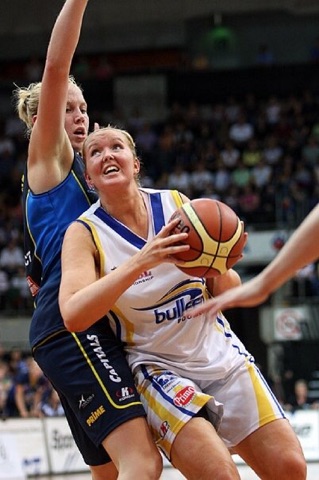
“IF I’M NOT A BASKETBALLER, WHO AM I?”
I always thought walking away from the game would be easy. I was the player that would say ‘training cancelled, let’s go out for breakfast’ if the coach was running late. However, while the first couple of weeks were great, getting to live like a “normal person”, after that I was hit by something. An identity crisis of epic proportions that left me questioning if I had made the right decision. I was always known as a basketballer. I always had a group of girls that I loved spending time with, expecting me at practice and games. I always had someone to talk to at a basketball stadium. I always had a purpose. If I’m not a basketballer, who am I?
After some time of over-eating and living an unhealthy lifestyle, the opportunity arose to coach my eldest niece Emma in her first season of bottom age under 12’s. This team was in a fairly low grade, yet the fear that I wouldn’t know what I was doing was real. “Coaching is totally different to playing, how the hell am I going to do this? I’m going to get eaten alive by real coaches” was a constant thought and only heightened my fears. The season started and I spent a lot of time teaching these young girls the fundamentals of the game. As the season went on I started to realise that I not only enjoyed coaching, but with the right guidance and mentors, I could improve and possibly take this coaching thing further.
I started attending coaching clinics and enrolled and completed both the Basketball Australia Club and Association coaching courses through Basketball Victoria. I met some amazing coaches and simply chatted about basketball taking in every little thing and trying to implement it as best as possible. Before I knew it, I no longer worried about who I was. I no longer missed the game, because I never left. The competition that I craved as a player was replaced by the strategy and fulfilment of a coach. Now I look back, and I wish I had started it all earlier.
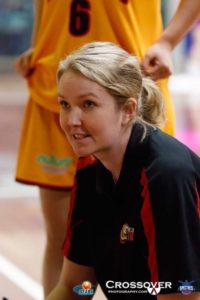
The time came that I wanted more of a challenge. I wanted to be able to coach older athletes and be taught a lesson by opposition coaches, and it was here that I was faced week-in, week-out by the next big challenge.
“I NO LONGER MISSED THE GAME, BECAUSE I NEVER LEFT.”
I am a fairly vocal coach. If you are unsure if I am the head coach, then you’re headless. I had a male assistant coach and the amount of times the male opposition coach would walk straight past me, and shake the hand of my assistant coach, was countless. This was upsetting and really took me back. I would often think “I work hard, I care about my players, whether you like me or not is irrelevant. Why would you be so disrespectful?” In weak moments, I honestly thought about walking away as there was no way of gaining the respect of other coaches. It wasn’t until a highly respected male coach said to me “What is happening [to you] and this behaviour is bull***t – but it’s not about you. You don’t coach for you, you coach for them” that I realised – I didn’t need their respect. I didn’t need their validation. All I needed was to believe that I deserved to be there and I deserved it because I have done the work.
Let me be clear, I am not trying to make this a “power for females” blog. I am simply sharing challenges I faced. I have met and are friends with more respectful male coaches who are more than willing to share than those who don’t. But as Jim Jeffries says, “As a society, we can only move as fast as our slowest person”.
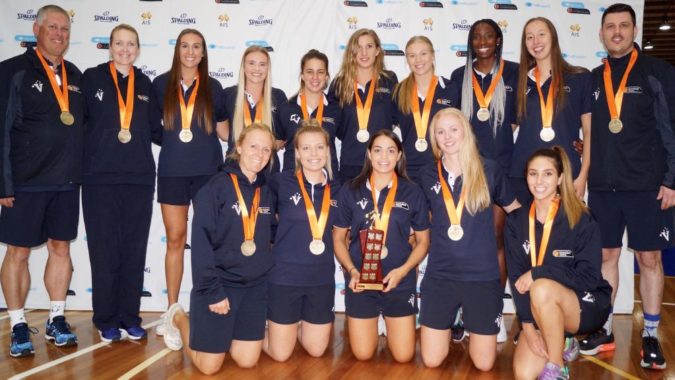
Now I am coaching senior women at Diamond Valley in SEABL and I would never have got this far without learning some big lessons. I believe it is important for any ex-player to know, an identity crisis after retiring is real, normal and ok. I found coaching, but you might find something else. If coaching is for you, don’t deny the abilities that you have picked up while playing. Playing is just a different pathway to acquiring knowledge. Ultimately whether you have been a player, a coach, a parent or just a hoops junkie, becoming a coach should always be about the players. Always remember what it was like to be a player and try to empower them to make their own decisions.
Finally, don’t stop working! We used to train day in and day out to prepare for games. Seek assistance, attend clinics, find a mentor, whatever it takes to make sure you are as prepared as possible. This is where your confidence will come from.
Thank you for taking the time to read this. I hope it was at least helpful to someone and if any of my players are reading this, training will never be cancelled if I’m running late.
Zoe Carr played 152 WNBL games for the AIS, Canberra and Bulleen, and is currently SEABL Women Head Coach for the Diamond Valley Eagles.

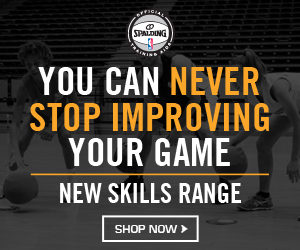
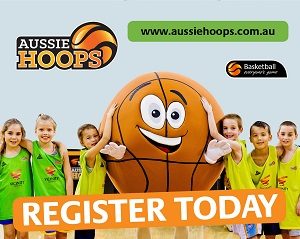

Leave a Reply